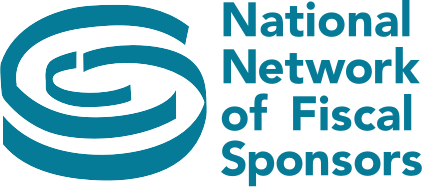This page is to assist individuals and organizations interested in being fiscally sponsored by A Well-Fed World.
About AWFW Fiscal Sponsorships

A Well-Fed World provides a limited number of fiscal sponsorships to groups and individuals so that U.S. foundations and donors may receive tax benefits for supporting mission-aligned work by groups and individuals without 501(c)(3) tax-exempt status.
We use a pre-approved grantee (Model C) method that manages the income side of donations... taking in donations and distributing them as mutually agreed upon (usually in lump sums). We track, tally, and provide tax receipt letters to the donors.
While annual reports providing expense details are needed for oversight, we do not directly manage expenses or make direct payments on behalf of grantees.
Thanks to generous donors who subsidize the program, we are able to offer a reduced "standard" rate of 5% for U.S. fiscal sponsorships and 7% for international. This may include custom donation forms (example) for groups. Extended options such as social media campaigns, vehicle donations, and cryptocurrency donations may be available at a higher rate.
Here's more info about our fiscal sponsorships.
Questions? Email Elizabeth at [email protected].
Eligibility
For applicants under consideration, we'll need to confirm logistical eligibility using these online forms. The section below highlights some key elements that will need to be submitted in the forms. If approved, the final step is to sign a two-page contract spelling out each party's rights and responsibilities.
United States
U.S. Individuals AND Organizations
-
- Complete W-9 Form (name, address, personal SSN or group EIN, and signature only - skip #4 and #7)
-
- Provide payment details (if direct deposit: provide bank statement or screenshot with name of account, routing number, and checking account number).
International
Foreign Individuals
-
- Submit photo ID
-
- Complete W-8 Form for Foreign Individuals - (instructions)
-
- Provide payment details
- Wire transfer (complete this wire form)
- PayPal (provide email address)
- Provide payment details
Foreign Organizations
-
- Submit photo ID and proof of organization
-
- Complete W-8 Form for Foreign Organizations - (instructions)
-
- Provide a list of board members and/or project leaders
- Full names
- Country of residence
- Country of citizenship
- Provide a list of board members and/or project leaders
-
- Provide payment details
- Wire transfer (complete this wire form)
- PayPal (provide email address)
- Provide payment details
About Taxes (U.S. Only)
The information provided is for educational purposes only and should not be considered a replacement for professional financial or legal advice. Please consult your accountant and/or lawyer for details as they pertain to your particular situation.
* January, we will provide a 1099 tax form for the total amount of funds distributed in the prior year.
* Individuals must report this amount on their personal 1040 tax return. Groups must report the amount on their appropriate tax return.
* The full amount is generally taxable except that related expenses that can subtracted. So keep precise tracking and save receipts. Use the 1040's Schedule C to report the income and subtract the expenses. Ideally, the project expenses will cancel out most or all of the taxes.
* We recommend setting aside 1/3 of the grant for taxes in case Social Security and Medicare taxes apply. Ordinary income taxes are 10%-22% for low-middle income. Read more about tax brackets.
* Check with a tax professional if you qualify for an exemption from Social Security and Medicare taxes (an additional 15.3%) if funds are not considered self-employment income. Check with an accountant, especially if there are other sources of Schedule C income.
* It is not necessary to itemize. Expenses can be subtracted from the grant on Schedule C (which is distinct).
* Consider if it's better to receive funding early in the year so that there is more time to spend it (and therefore less potential tax liability).

